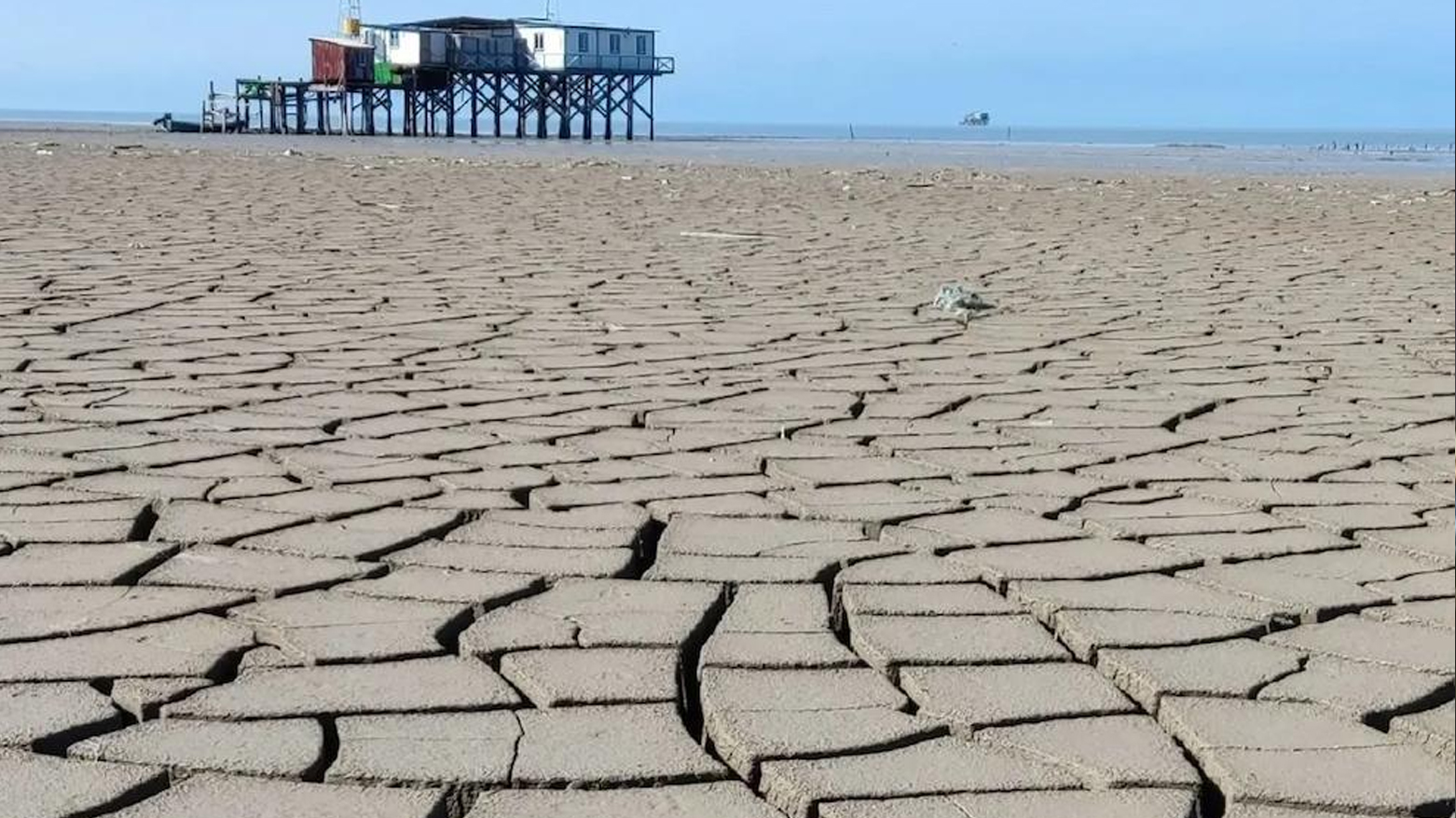Researchers Warn of Alarming Decline in Caspian Sea Water Levels
According to recent studies, the sea’s water level has dropped by more than 2.5 meters over the past three decades, largely due to rising temperatures, reduced rainfall, and declining inflows from rivers.

ERBIL (Kurdistan24) – The Caspian Sea, the world’s largest enclosed body of water, is facing an unprecedented decline in water levels, raising environmental, economic, and social concerns across the region, researchers have warned.
According to recent studies, the sea’s water level has dropped by more than 2.5 meters over the past three decades, largely due to rising temperatures, reduced rainfall, and declining inflows from rivers. This decline has caused coastlines to expand rapidly, altering ecosystems and threatening livelihoods.
Farhad HosseiniTaifa, director general of Gilan province's Environmental Protection, said the crisis has devastated coastal forests that once relied on seawater. “In Gilan, coastal forests such as Anzali, Bojaq, and Jokandan have now dried up and disappeared, as even during storms, seawater no longer reaches these forests,” he told Mehr news agency.
The ecological consequences are already severe. Farshid Ramazani, director general of geology in Gilan, described the situation as a serious threat to northern Iran’s coastal ecosystems. “This has resulted in the drying up of large areas of valuable forests, including Anzali, Bojaq, Jokandan, Miankala, and Gomishan,” he said. “The crisis not only endangers the environment but also leads to widespread economic and social consequences, such as reduced fish resources and damage to the tourism sector.”
Ramazani further warned that continued decline could render northern ports inoperable. He identified the construction of dams on rivers flowing into the Caspian, combined with climate change and human-driven environmental shifts, as major contributing factors.
While some view the recession as an opportunity for greater coastal exploitation, experts stress the urgent need for sustainable water management to mitigate the long-term consequences. “There are many interpretations regarding the recession of the Caspian Sea, but there is still no definitive answer to confirm or reject any of them,” HosseiniTaifa added.
The Caspian Sea is bordered by five countries — Iran, Russia, Azerbaijan, Kazakhstan, and Turkmenistan — and has long been vital for regional trade, energy transport, and biodiversity. It contains rich fish resources, most notably sturgeon, which produces caviar, as well as key oil and gas reserves. The sea has no natural outlet, relying entirely on river inflows, particularly from the Volga River, to maintain its level.
Over the past century, fluctuations in water levels have periodically reshaped the region’s environment and economy. However, the recent decline, driven by climate change, dam construction, and reduced precipitation, has raised fears of long-term ecological collapse. Environmental experts warn that without coordinated regional action, the Caspian could face irreversible damage, disrupting both local communities and international industries dependent on its resources.